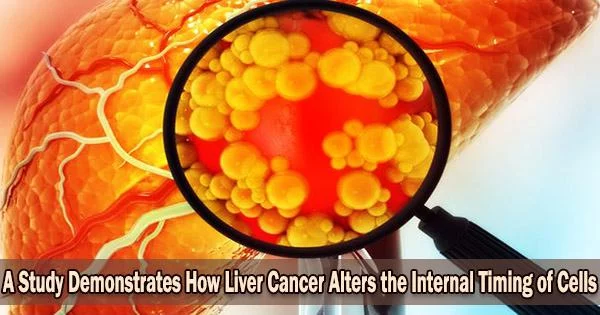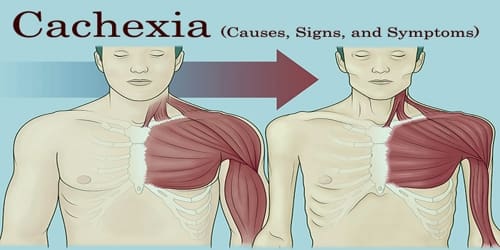Hepatocellular carcinoma (HCC), the most prevalent kind of liver cancer, is already the third greatest cause of cancer-related deaths worldwide, and the number of cases is rising both in the U.S. and internationally. While some patients can benefit from chemo, surgery, and liver transplants, millions more lives could be saved by HCC-specific therapies.
The circadian clock proteins found inside cells, which help regulate changes in the body’s functioning over the course of a day, have provided information about one prospective target in recent studies. However, the majority of this study merely makes passing references to a possible indirect relationship between HCC and circadian clock function, such as the finding that liver cancer patient cells were found to have irregular circadian rhythms.
Now, a study performed by scientists at the Keck School of Medicine at USC not only establishes a clear link between circadian clock proteins and liver cancer, but also reveals the specific mechanism by which cancer cells manipulate the circadian clock to multiply and spread. Additionally, it was discovered in the study, which was just published in the journal Proceedings of the National Academy of Sciences, that blocking essential clock proteins can stop cancer cells from proliferating.
“Earlier studies didn’t give us a real handle on how we could use a specific treatment to target processes within liver cancer cells. In this paper, we’re making the first steps toward that,” said the study’s senior author, Steve A. Kay, Ph.D., University and Provost Professor of Neurology, Biomedical Engineering and Quantitative Computational Biology at the Keck School of Medicine of USC and director of the USC Michelson Center for Convergent Bioscience.
The research is a cooperation between cell biology scientists and doctors at the USC Norris Comprehensive Cancer Center, which is noted for its leadership in clinical trials for numerous malignancies, including HCC.
“We are very excited to find a new, innovative treatment strategy that may ultimately improve outcomes for patients with liver cancer,” said Heinz-Josef Lenz, MD, a professor of medicine and preventive medicine, associate director for clinical research and co-leader of the Gastrointestinal Cancers Program at USC Norris. “By targeting the circadian clock, we are not only targeting tumor cells but also the area around the tumor, which can help increase the efficacy of other targeted treatments.”
Interrupting the cell cycle
To elucidate the role of circadian clock proteins in HCC, Kay, Lenz and their colleagues conducted a series of experiments, using a combination of cell culture, genomic analysis and animal models.
We are very excited to find a new, innovative treatment strategy that may ultimately improve outcomes for patients with liver cancer. By targeting the circadian clock, we are not only targeting tumor cells but also the area around the tumor, which can help increase the efficacy of other targeted treatments.
Heinz-Josef Lenz
First, the researchers demonstrated that the replication of liver cancer cells in cell culture depends on two important clock proteins, called CLOCK and BMAL1. Cancer cells’ ability to replicate was halted when CLOCK and BMAL1 were inhibited, leading to apoptosis, or cell death. Many contemporary cancer treatments aim to cause apoptosis, a process in which a cell ceases to divide and eventually self-destructs.
The scientists then used their arsenal of genetic materials, gathered through years of study on circadian clock proteins in the body, to elucidate the function of CLOCK and BMAL1. Additionally, they discovered that removing the clock proteins boosted levels of the enzyme inhibitor P21 and decreased levels of the enzyme Wee1.
“That’s exactly what you want, because when it comes to cancer cell proliferation, P21 is a brake and Wee1 is a gas pedal,” said Kay, who also co-directs the USC Norris Center for Cancer Drug Development.
Finally, the researchers tested their findings in vivo. Large tumors developed in mice injected with human liver cancer cells that had not been altered, whereas tumors grew very slowly or not at all in mice injected with cells that had been altered to decrease CLOCK and BMAL1.
Developing targeted therapies
The growth of liver cancer can be stopped in its tracks if scientists can figure out how cancer cells manipulate circadian clock proteins, but there are still more problems to solve. For example, Kay and his group plan to investigate the connection between the P53 gene, Wee1, and circadian clock proteins. The P53 gene aids in the body’s defense against tumor formation, and P53 mutations have long been associated with an increased risk for a number of malignancies.
“We really need to understand that relationship to better identify which patients might benefit most from a targeted therapy against CLOCK and BMAL1,” Kay said.
He and his team also intend to start putting potential CLOCK and BMAL1 inhibitors to the test in patients with liver cancer. The study is a component of a larger body of work that examines the role of circadian clock proteins in various cancers, such as glioblastoma, leukemia, and colorectal cancer.
In addition to Kay and Lenz, the study’s other authors are Meng Qu and Alexander Vu from the Department of Neurology, Keck School of Medicine of USC; Raymond Wu and Hidekazu Tsukamoto from the Department of Pathology, Keck School of Medicine of USC; Guoxin Zhang and Jeremy N. Rich from the Department of Neurology, University of Pittsburgh; Han Qu and Zhenyu Jia from the Department of Botany and Plant Sciences, University of California, Riverside; and Wendong Huang from the Arthur Riggs Diabetes and Metabolism Research Institute, City of Hope National Medical Center.
















